In the past few months, family life has been flipped upside down by Coronavirus. It’s taken us by surprise. Things we rely on – extended family members, shopping, jobs, schools, childcare, friends, activities, exams… have changed greatly or gone altogether. Your family, like mine, is probably housebound right now, which is also probably entirely new.
If you’re wondering how families are managing their wellbeing in these extraordinary times, I thought I’d share some emerging positives. Hopefully to help us all thrive a little more indoors. I’ll also highlight what you can do to support yourself and your family so everyone feels less isolated during isolation. If ever there was a moment to be a distanced but united force, it is today! I’ll be talking about:-
- Family challenges right now
- Family creativity
- Family quantity time
- Considering others
- Family mindfulness and resilience
- Ways to support yourself and your family during Coronavirus
Please click for our tips resource: Family Wellbeing & Coronavirus leaflet

Family challenges right now
Just as a starting point, I’m going to briefly summarise challenges so I can relate them to the many positives to be found. Recognising them here will also let you know that you’re not alone if you are finding things difficult right now.
The main thing currently is a profound sense of loss and change. Some families have or will lose people they love or their jobs and livelihoods. Both are shocking losses. For those in the home who are still going out to work in jobs where they are interacting with others, there’ll be a shift towards worries of safety. Working in a shop or hospital is now a very different thing.
For others, losses of freedoms, routines and of grandparents popping round will be felt deeply. Our normal ways of working and financial security have been significantly altered and we’re dealing with the closure of shops, schools, places of worship and recreation. I’m taking one day at a time at the moment, recognising that there must be a period of adjustment so these changing times can settle.
How are your children getting on with being apart from those invested in them outside of the home like friends, teachers, sports coaches and support workers? This won’t be easy. Perhaps you’re a separated parent facing changing childcare arrangements? If you’re a family with loved ones with disabilities, special educational needs or other mental health or health conditions you may be intensely feeling the effects of now. Single parents will be impacted in different ways to those in couples, and parents not getting on will struggle more than those in harmony. We’ve all got to watch out too that we don’t start using unhealthy coping mechanisms as a way to manage these times.
Anyone and everyone’s family wellbeing could be affected as the novelty of this situation wears off. Irritability, anxiety and stress can increase and, distressingly for some, home may not always be a safe place so other types of abuse indoors may be greater.
There are no easy answers to these difficulties but you can get online support from loved ones and organisations. Do draw on your inner reserves of resilience and strength to get through.
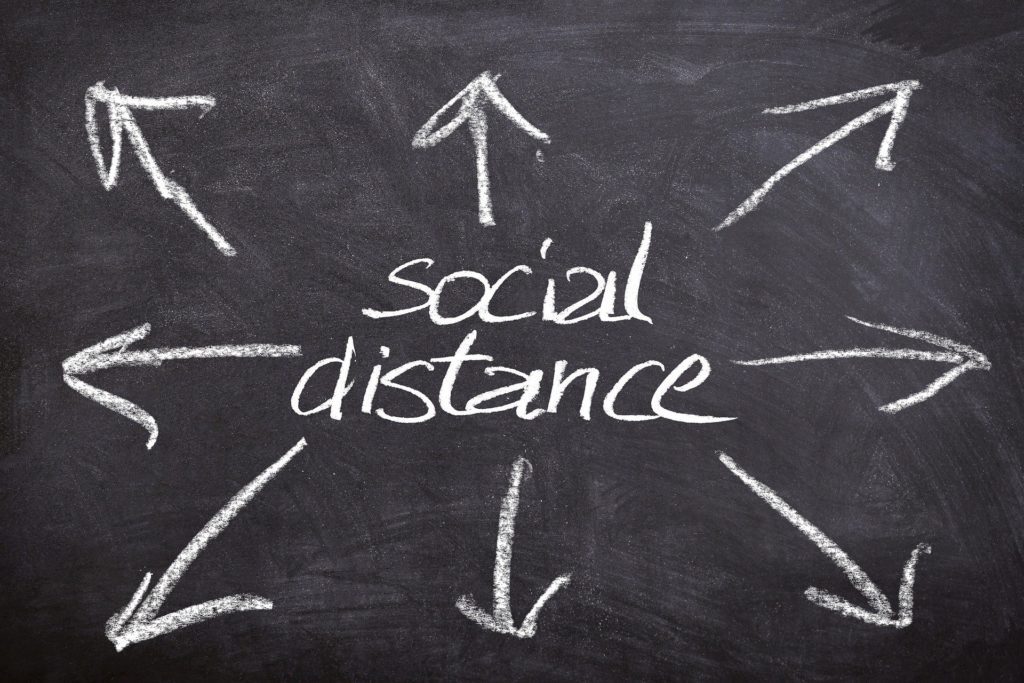
Family creativity
How are families managing this time of loss and change? Creativity is playing a big part in helping families to adapt. Housebound parents are managing their ‘work from home/childcare’ juggles by doing online meetings as children build fortresses in the kitchen or they’re working on their laptop as kids bounce about to virtual PE sessions. Families are being more exploratory than ever, thinking outside the box for imaginative play, activities, learning and entertainment. Old ways to educate and amuse are out. In are things to do in the house and online, and there are a lot of inventive things going on! Families are making this work.
You’re also being creative about how you interact. Chatting face to face as before isn’t happening. How we meet, greet and talk has altered but social interaction has far from stopped. You are doing it in other, interesting ways. There are Facetimes and virtual hangouts. New What’s App and Facebook groups and phone call chats are frequent.
Even interactions at home aren’t the same as you’re seeing a lot more of each other throughout the day. A study published in Demography in January showed the quality of the parental marriage/relationship has a significant impact on the children, both in terms of educational attainment and relationships in later life. So, if there’s a partner there with you, how are you both making sure you get on indoors as well as with the online world?
Creativity is likely happening in your kitchen too with less frequent shop visits, less (or no) takeaways and no trips out to eat. I’m certainly being both inventive with my budget and my ingredients and I’m definitely eating more home-cooked meals. Perhaps you’re finding eating healthier is easier at the moment as fresh produce is in stock in the shops? As this virus harms depleted immune systems, are you powering up on fruits and vegetables? I’m trying to although I am also watching out that all this focus on groceries doesn’t make me eat more. Researchers analysing studies on the ‘social facilitation’ of eating confirmed that we tend to eat more when eating with others so I’ll be keeping a tab on my waste-line as we sit down together for every meal!
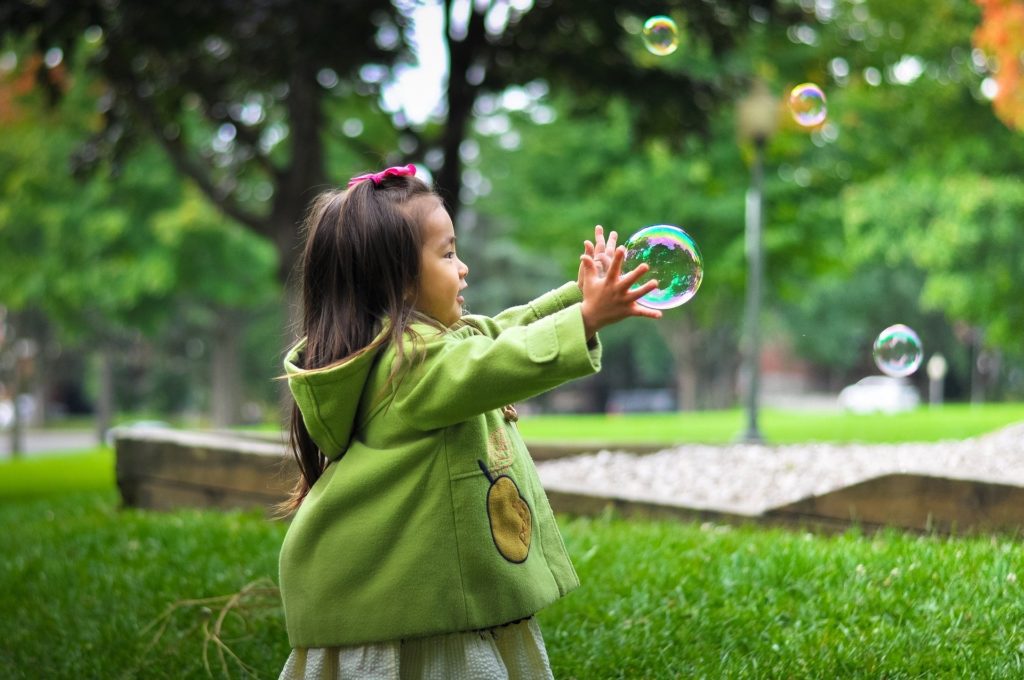
Family quantity time
Families are getting lots more quantity time together currently. From the late 1990’s, Iceland encouraged more quantity time in the home having found itself with one of the worst rates of teenage alcohol and drug use in Europe. Parents there were encouraged to up the time they spent with their teens and to talk to them more about their lives. Art, music, drama, sporting activities and other supportive measures were introduced as well. All of it had a remarkable effect and Iceland ended up with reducing its’ rates to the lowest in Europe. A total turnaround. Right now, in homes across the world there’s a lot more quantity time and creativity going on. Wouldn’t it be great if teen/parent relationships were the better for it?
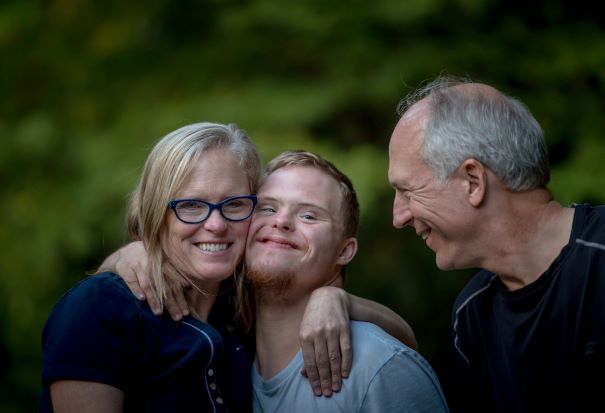
Considering others
Social-responsibility is something we’re taking big account of. Families are considering others a lot and we’re moderating ourselves for the greater good. I feel like I’m a role model in this for my son as he sees how I do things in life.
In Japan and other East Asian countries, face-masks have been worn for years with the aim of protecting the wearer but also, widely, from stopping a personal illness being passed on to others. You wear masks for the greater good as well as yourself. People everywhere now have that thinking by staying home and social distancing from others. We’re seeing how connected we are with everything and everybody. We are small cogs within the machines of local, national and worldwide society.
There is a greater sense of community helping families resolve physical isolation problems. People are looking out for each other – catching up virtually and offering to share supplies or collect necessities. I’ve had messages recently signed off with ‘stay safe’ and ‘keep well’ and my neighbours ring whenever they go shopping to see if we need anything. Both of these mean a lot. Everyone’s been praising all the astounding work of those in key services keeping our country going and many businesses and individuals have been donating generously to the NHS. I’m feeling respect, kindness and understanding being shown which is enriching for the family soul.
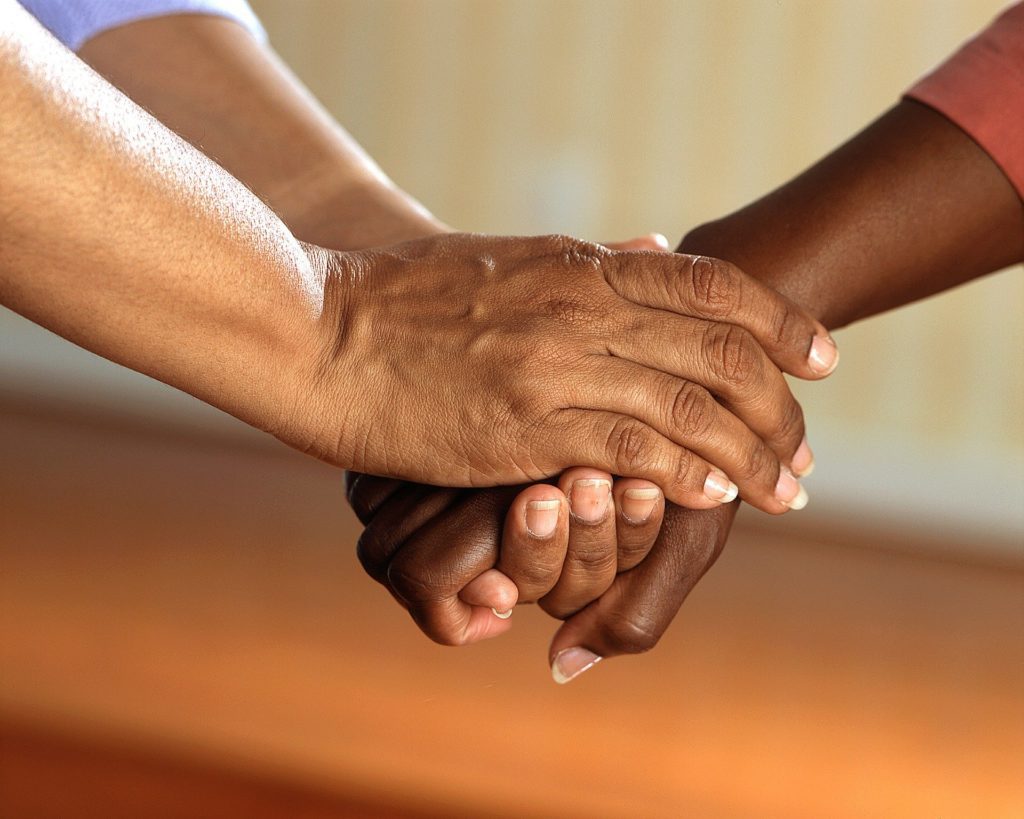
Family mindfulness and resilience
We are living in the present and being more resilient than ever. You’ll be mindfully noticing fluctuations in your own health and in the health of your loved ones. We are more observant to what’s going on with our bodies and there is a greater connection to our physicality.
If you are at home with your family and there aren’t big health or finance worries and if added chores are shared, you might find yourselves freer to be mindfully present. Present to notice the changing weather outside or to sit and play together. You can spend good chunks of time chatting with your partner, children or an old friend online because there are less things to rush about and do.
A study in Developmental Science from 2017 showed that when teenagers have a positive relationship with their parents, as adults, their brains and bodies respond to stress in a way that helps them better engage with the world. I’m revelling in the joys right now that come from being in the moment, with less of the usual life demands. What mindfulness practices are your family up to?
It’s worth thinking too about how you and your loved ones deal with novelty? If you all enjoy it, you’ll probably love the circumstances we find ourselves in. I’d embrace it if this is the case. If your family though flourish more with stability, then together work out how to stay in the hour-by-hour, day-by-day moment. You can then enjoy spotting small wonders and checking off things to be grateful for. I’m also finding the time to get lots of household chores done that I never would have imagined possible!
Family resilience is bolstered at the moment. We’re being pushed beyond our comfort zones and are drawing on inner reserves of coping. I’m becoming a better problem-solver – having to think creatively and find new solutions to issues not normally experienced. How can we help our children to understand the importance of resilience too? What are you doing to manage stress well and encourage them to push out of their comfort zones? I bet you’re tackling some tough but fun challenges together. Don’t forget to show them how to self-regulate by analysing, setting goals, monitoring, evaluating and then working with them to learn from any mistakes. We have loads of potential now to make really good stuff happen!

Ways to support yourself and your family during Coronavirus…
- Be role models by following guidelines and by being kind, helpful, empathetic and considerate.
- Keep in touch with others virtually and offer support and solutions to those finding things tough.
- Use support services such as Headspace for mindfulness, Anxiety UK’s free relaxation guide and the dedicated online pages from Mind and the Anna Freud Centre.
- Help everyone to live in the present and practice mindfulness.
- Plan for how to be grateful for small, good things each day and together notice details in the things we’d normally rush past.
- Look after yourselves. Eat well, take every-day exercise, drink water, breathe through stress and be patient. You are in exceptional circumstances!
- Go steadily and allow for a period of adjustment. Don’t aim for highly productive homeworking for 8 hours straight or to home-tutor like school, all day, every day.
- Listen, talk and interact with your family members often and positively. Enjoy quantity time together.
- Share household chores between everyone.
- Keep some routine to each day.
- Have fun and be creative.
- Build resilience within your family. Know different members will handle things in different ways.
Families will be working, learning, loving and supporting each other in new ways today. Why not let us know how you get on!?
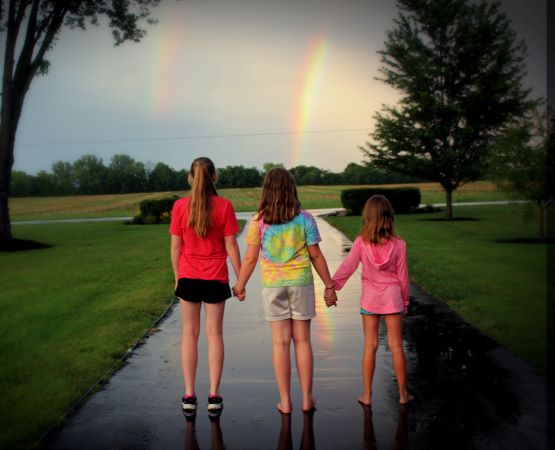
References:-
S. Brauner-Otto, W. Axinn & D. Ghimire: ‘Parent marital quality and children’s transition to adulthood.’ Demography 57, 195-220 (2020)
H. Ruddock, J. Braunstrom, L. Vartanian, S. Higgs. ‘A systematic review and meta-analysis of the social facilitation of eating’. The American Journal of Clinical Nutrition Volume 110, Issue 4, 842-861 (2019)
E. Shirtcliff, M. Skinner, E. Obasi & K. Haggerty:‘Positive parenting predicts cortisol functioning six years later in young adults.’ Developmental Science Volume 20, Issue 6 (2017)
I.Sigfusdottir, T.Thorlindsson, A.Kristiansson, K. Roe & J. Allegrante. ‘Substance use prevention for adolescents: the Icelandic Model.’ Health Promotion International, Volume 24, Issue 1, 16–25 (2009)
E. Young: ‘Five ways to boost resilience in children.’ The Psychologist, British Psychological Society March 2020
W. Qiu, C. Chu, A. Mao & J. Wu. ‘The Impacts on health, society, and the economy of SARS and H7N9 outbreaks in China: a case comparison study.’ Journal of Environmental Public Health doi: 10.1155/2018/2710185


